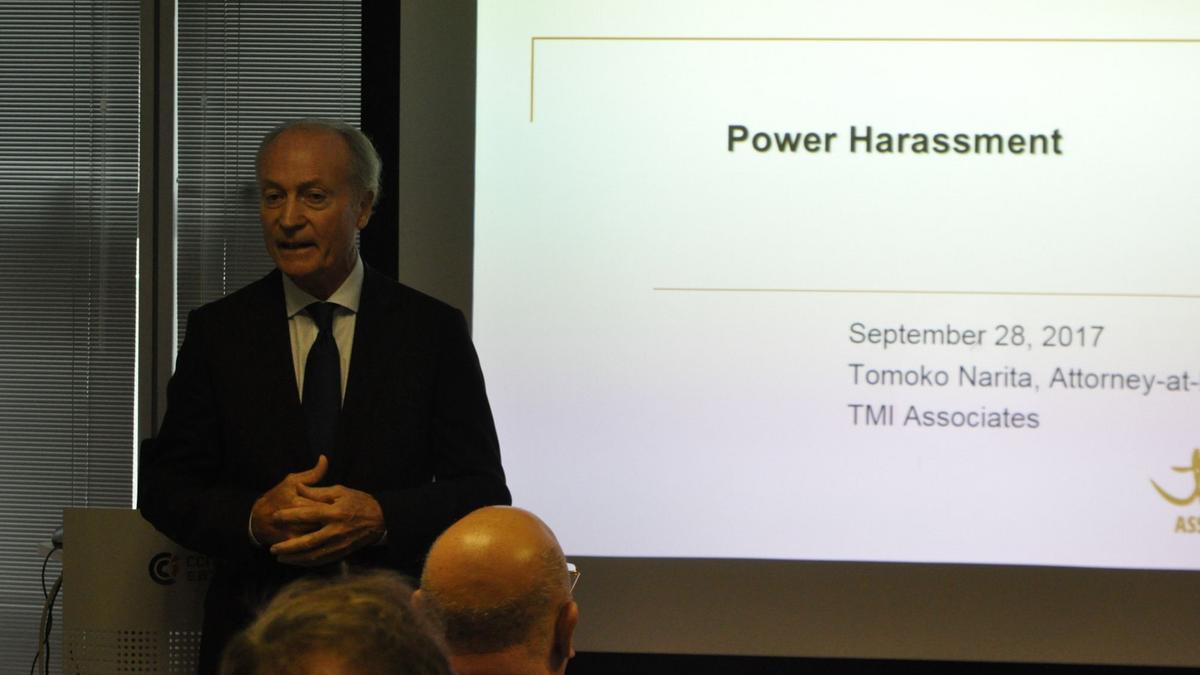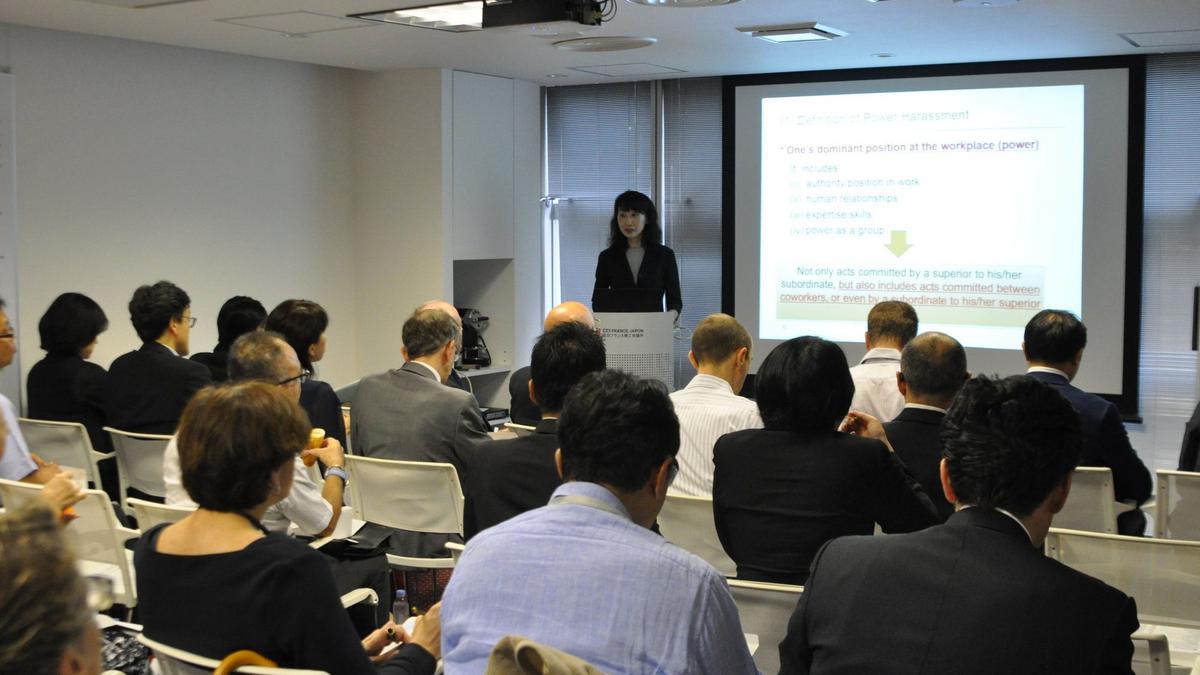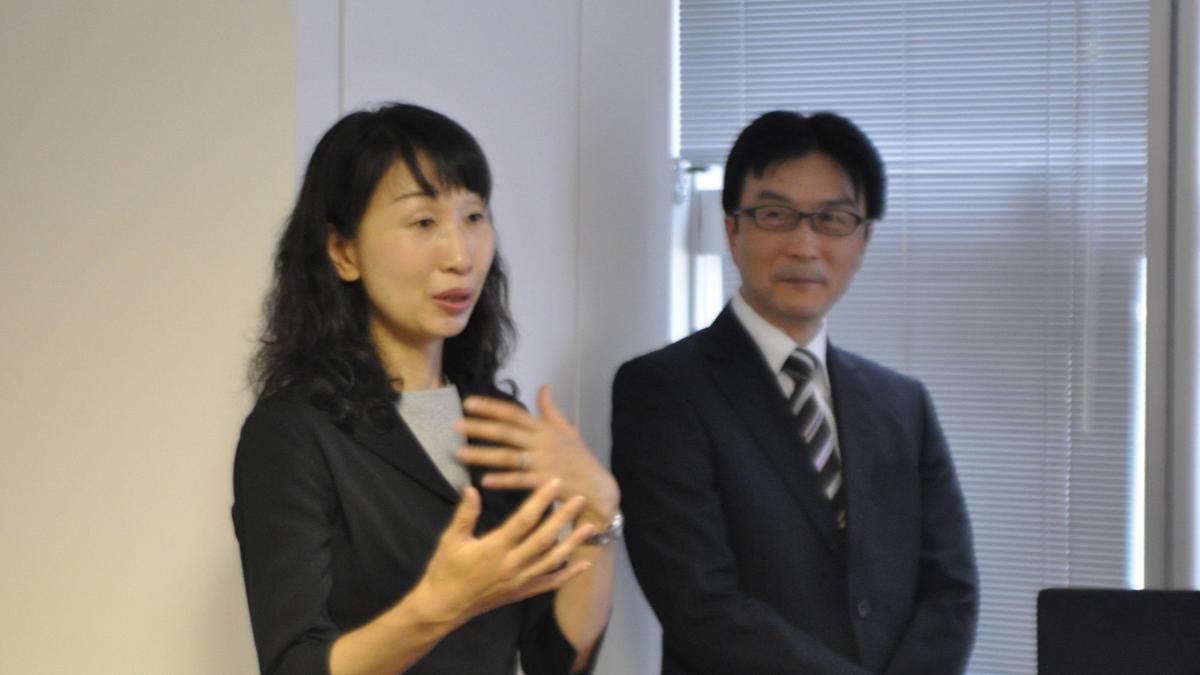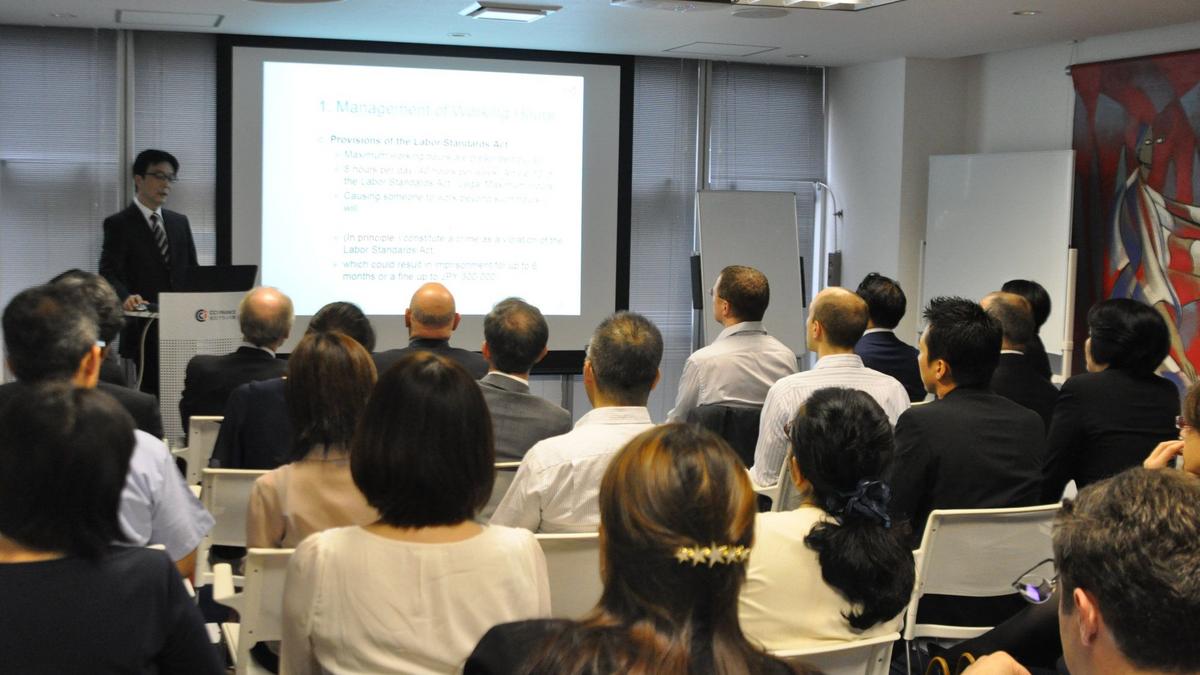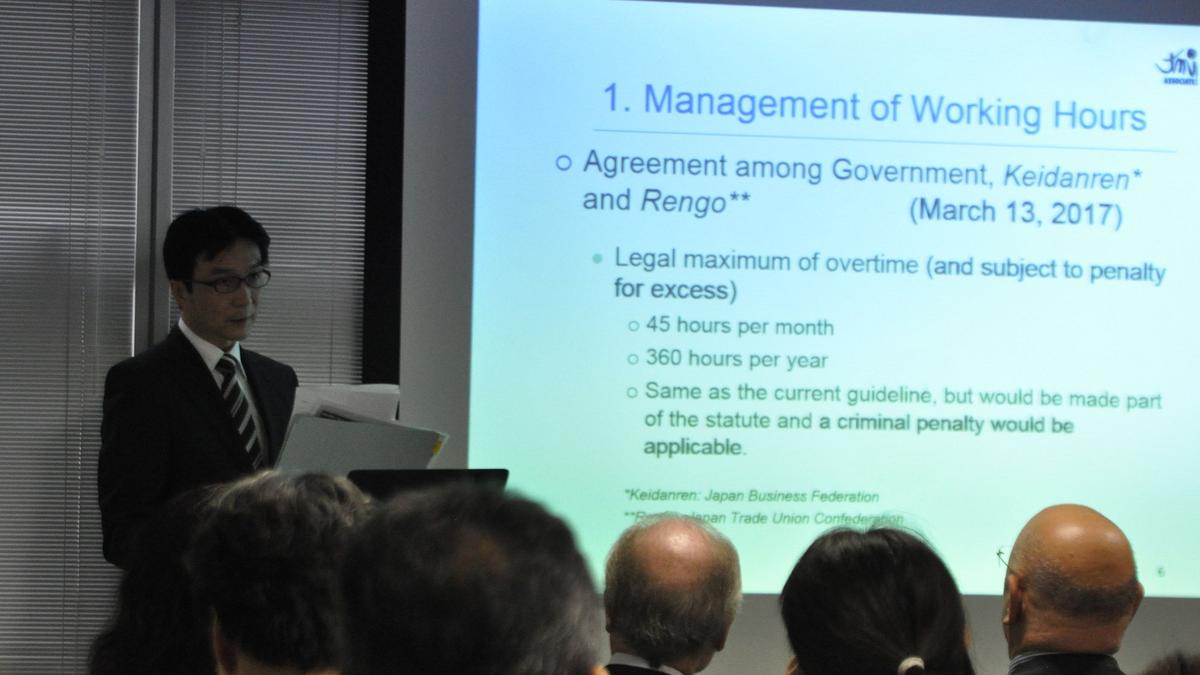Bilans d’évènement • Comités
What leaders need to know about monitoring employees’ working hours and preventing power harassment in the workplace
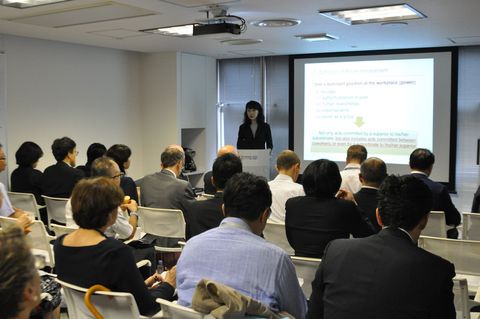
On September 28, 2017, the Tax and Regulations Committee, chaired by Philippe Dalpayrat, welcomed Counsel Tomoko Narita and Senior Associate Seiji Kurihara, both attorneys-at-law at TMI Associates. The purpose of the seminar was for managers to learn how to prevent power harassment in the workplace and monitor their employees’ working hours in light of the new regulations on overtime work.
Power harassment is more widespread than expected, with 32.5% of employees in Japanese companies having experienced power harassment in the last three years (according to a survey conducted by the Ministry of Health Labour and Welfare in 2016). Surprisingly so, this number has been raising, as only 25.3% answered yes when asked in 2012.
Tomoko Narita first explained what the past court cases identified as power harassment. She taught the audience how to identify which acts may constitute harassment, and gave recommendations on what to do if such behavior was encountered as companies are obligated by law to provide a safe environment to their employees.
Power harassment is not only committed by a superior to their subordinate, it can also be between coworkers. It can take the form of physical (throwing items at the person, hitting them, etc.) or psychological attacks (scolding them in a loud voice, making unreasonable large demands, etc.). In the worst cases, power harassment can lead to mental illness and/or suicide. Both the harasser and the company have civil liabilities (via payment of consolation money which is generally over 100 million yen in the case of death of young employees), with possible disciplinary actions and criminal punishments for the harasser and damage to the company’s reputation (plus cost, time and manpower spent to solve the issue).
Seiji Kurihara explained why it was necessary for leaders to manage their employees’ working hours and how to do it, and showed concrete examples of consequences if monitoring was not done (the well-known Dentsu case, among many others). Eliminating excessive overtime (e.g. more than 60 hours per month), harassment and under-declared overtime, as well as taking appropriate measures with newly hired or young employees who present a higher risk, are major ways to prevent critical cases.
According to the Article 36 agreement, overtime cannot surpass 15 hours per week, 45 hours per month and 360 hours per year under the current guideline from the government, except for specially agreed busy periods. Following the agreement among the government, the Japan Business Federation and the Japan Trade Union Confederation in March 2017, surpassing these limits will be subject to criminal penalty as soon as next year (depending on the legislation schedule at the diet). Exceptions can be done on special situations such as busy seasons but the maximum overtime work will be an average of 60 hours per month (720 hours per year), and months with more than 45 hours of overtime should not exceed 6 per year.
To reduce overtime, Seiji Kurihara recommends making the Article 36 agreement thoroughly known to all employees, creating a system which allows for managers to be aware of their subordinates’ overtime work, sending a warning letter to an employee if needed (as well as his/her superior), and giving a negative evaluation for leaving the issue of long working hours unresolved. Among other means, under-declared overtime can be discovered via PC log-in and log-out times.
In April 2015, the Special Response Team to Eliminate Overwork (locally known as Katoku) was created and even though it has only investigated Japanese companies since its inception, according to Seiji Kurihara it may commence investigating foreign capital companies any time soon. In conclusion, allowing employees to work excessive long hours has become a risk to companies as they may be referred to the public prosecutor’s office and top management may be forced to deal with fines and adverse publicity.
